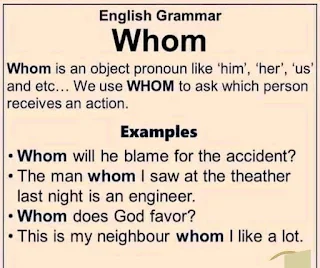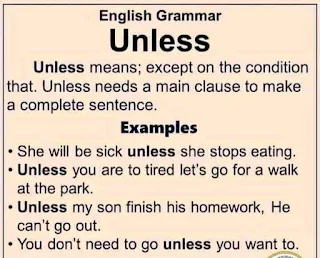How to learn English fast in easy way
How do you use whereas in a sentence?"
"All of my sisters are doctors, whereas I am a teacher." "Both of my parents went to college, whereas I only finished high school." "Whereas I am a vegetarian, my whole family eats meat."
4 Ways to Use 'Though'
As a conjunction towards the beginning of the sentence: E.g. “Though I do not usually drink coffee, I have had 2 cups today.” ...
At the end of the sentence. E.g. “I already ate. ...
In place of 'however' or 'but' E.g. “I do not usually drink coffee, though I've had 2 cups today.” ...
With the word 'as'
As conjunctions, although and though are interchangeable. Although is generally considered more formal than though, though both forms appear regularly in both formal and informal writing. Though is also an adverb, meaning however or nevertheless.
to denote when something will happen. Until and till are both standard, but what might be surprising is that till is the older word. 'Til, with one L, is an informal and poetic shortening of until. The form 'till, with an additional L, is rarely if ever used today.
The only difference between in spite of and despite is the 'of'.
Despite the pain in his leg he completed the marathon. It seems to me "in spite of" is a slightly more elaborate form, to be used in more fancy, most formal writing. "Despite" is not informal but not quite that elaborate.
We normally use 'since' with the present perfect to describe an action or situation that began in the past and continues in the present. For example: We've been married since 1995.
As a preposition, despite is normally followed by a noun, a noun phrase, or a pronoun and does not require a comma unless the intention of the writer is to emanate emphasis on the prepositional phrase introduced by despite.
'in spite of', 'despite' and 'although' are all used to show contrast and are used for the same meaning. The only difference is the way they are used; the structure in which they are used.
While they are both adverbs, meaning that they are modifiers, when properly applied, nevertheless should be used when referring to an event or situation which either has, is, or may occur. Nonetheless should be applied to something which is measurably quantifiable. Note, also, the structure of the example sentences.
















Comments
Post a Comment
Thanks for Comments.We will contact soon.